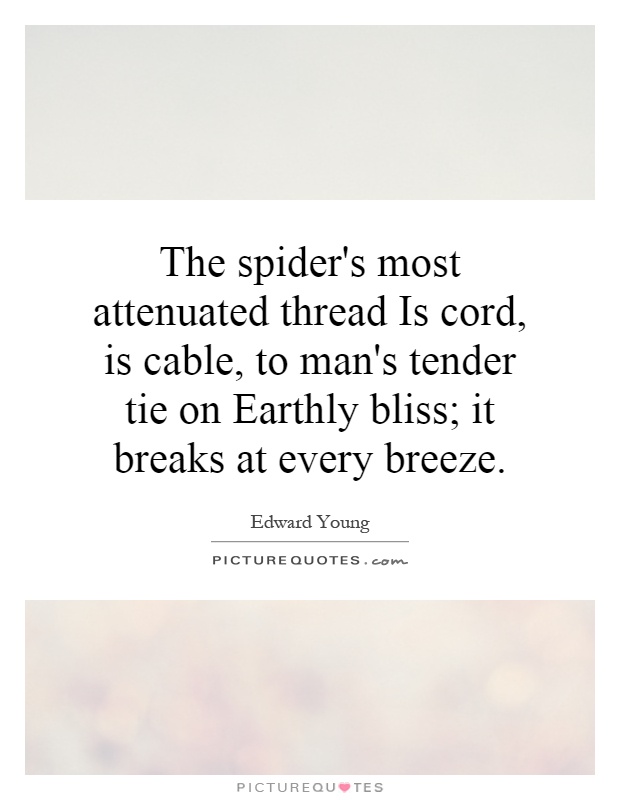The spider's most attenuated thread Is cord, is cable, to man's tender tie on Earthly bliss; it breaks at every breeze

The spider's most attenuated thread Is cord, is cable, to man's tender tie on Earthly bliss; it breaks at every breeze
Edward Young was an English poet known for his work in the 18th century, particularly his famous poem "Night Thoughts." In this poem, Young explores themes of mortality, the fleeting nature of life, and the importance of preparing for the afterlife. One of the most famous lines from "Night Thoughts" is "The spider's most attenuated thread Is cord, is cable, to man's tender tie on Earthly bliss; it breaks at every breeze."This line speaks to the fragility of human happiness and the impermanence of earthly pleasures. Young uses the image of a spider's thread to illustrate how easily our connections to the things that bring us joy can be broken. Just as a spider's web can be destroyed by a gentle breeze, so too can our happiness be shattered by the slightest disturbance.
The comparison of the spider's thread to a cable highlights the contrast between the strength of our desires and the vulnerability of our circumstances. We may feel that our attachments to worldly pleasures are strong and unbreakable, but in reality, they are delicate and easily severed.
Young's use of the word "attenuated" emphasizes the thinness and fragility of the spider's thread, underscoring the idea that our ties to earthly bliss are tenuous at best. This word choice also suggests a sense of attenuation or weakening, implying that our connections to worldly pleasures are constantly under threat and in danger of being severed.
Overall, Young's line about the spider's thread serves as a powerful reminder of the transitory nature of human happiness and the importance of seeking deeper, more lasting sources of fulfillment. It encourages us to look beyond the fleeting pleasures of this world and to cultivate a sense of inner peace and contentment that is not dependent on external circumstances.












 Friendship Quotes
Friendship Quotes Love Quotes
Love Quotes Life Quotes
Life Quotes Funny Quotes
Funny Quotes Motivational Quotes
Motivational Quotes Inspirational Quotes
Inspirational Quotes